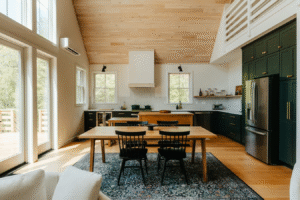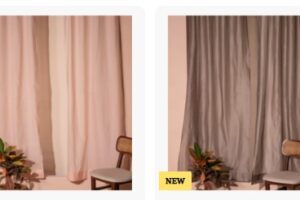For many people, the dream of living in their own home is one of life’s biggest goals — a place that reflects their personal style, provides comfort, and offers privacy. But with that dream comes the big question: how much does בניית בית פרטי בישראל actually cost? The price depends on a wide range of factors, and understanding them is crucial to planning your budget and ensuring a smooth building process. This guide breaks down the main costs, hidden expenses, and smart ways to save money on your way to building your dream home.
Key Factors That Influence the Cost of Building
Building a private house in Israel involves many variables that directly affect the final price. Let’s take a closer look at the main elements that shape your budget.
Location of the Plot
One of the biggest cost drivers is the location of the land. Plots in central Israel, such as Tel Aviv or its suburbs, are significantly more expensive than plots in the periphery. The price difference not only applies to the land itself but also to municipal fees, taxes, and development levies.
Type and Condition of the Soil
The nature of the soil has a major impact on costs. For example, rocky land requires heavy excavation, special foundation work, and advanced engineering solutions, all of which add to your expenses. In contrast, flat, stable soil can reduce development costs significantly.
Size and Design of the House
A larger house naturally means a higher cost. But it’s not just about square meters — complex designs, unique architectural features, multiple levels, high ceilings, and large windows will all increase the cost per square meter. Simpler, rectangular designs are usually more cost-effective.
Building Materials and Finishes
Your choice of materials has a huge effect on the final price. Standard concrete blocks and basic finishes will cost less than high-end stone cladding, premium tiles, imported fixtures, or advanced insulation systems. Sustainable, green building materials might cost more upfront but save money over time on energy bills.
Average Construction Costs Per Square Meter
To give you a clearer picture, here are the typical cost ranges for building a private house in Israel:
- Structural shell (basic frame) – ₪3,000 to ₪4,500 per square meter
- Standard finishes (flooring, basic kitchen, painting) – ₪1,500 to ₪2,500 per square meter
- Upgrades (premium kitchens, designer lighting, hardwood flooring) – add ₪500 to ₪1,500 per square meter
- Exterior development (garden, fencing, driveway) – ₪100,000 to ₪300,000 or more depending on the lot size and complexity
In total, building a 200 sqm house could range between ₪1.2 million and ₪2.5 million or more, depending on your choices and location.
Additional Costs You Must Consider
Besides direct construction costs, many additional expenses can impact your budget. These often catch people by surprise:
- Municipal fees and development levies – Required payments for building permits, infrastructure development, and betterment levies.
- Professional services – Hiring an architect, structural engineer, soil engineer, and building supervisor.
- Occupancy permit (Form 4) – Costs for inspections and certifications needed before you can move in.
- Interior design and furniture – Often overlooked but can add significantly to the overall cost.
How to Save Money When Building a Private House
Smart planning can help you reduce unnecessary costs and stay within budget.
Compare Quotes
Always get several bids from contractors, suppliers, and consultants. Don’t just focus on price — check references, past projects, and quality of work. A low bid could mean hidden costs or poor quality down the line.
Plan Efficiently
Design a functional, practical home with no wasted space. Simple geometric shapes and clear layouts not only save on construction costs but also make maintenance easier over time.
Choose Cost-Effective Materials
Look for local alternatives to imported materials. For example, high-quality local tiles or stone can provide excellent durability and beauty without the high price of imported options. Smart insulation and energy-efficient windows can also save money on future energy costs.
Invest in Professional Supervision
Paying for an experienced building supervisor might seem like an extra cost, but it’s one of the best ways to prevent expensive mistakes, delays, or poor workmanship.
Common Budget Mistakes to Avoid
Many homeowners exceed their original budget because of common errors:
- Forgetting about outdoor development – Garden landscaping, pathways, and fencing are significant expenses that should be planned for early.
- Underestimating municipal fees – These can be tens or even hundreds of thousands of shekels depending on location and project complexity.
- Making changes mid-construction – Altering the plan once work has begun is usually costly and causes delays.
- Choosing contractors only by price – Low-cost contractors may cut corners or demand additional payments later for “extras” that should have been included.
New Technologies That Reduce Building Costs
The construction industry is evolving, and Israel is adopting some innovative methods to help lower costs and speed up projects:
- Modular building systems – Prefabricated elements made in factories and assembled on site reduce construction time and waste.
- Smart project management tools – Digital platforms allow better budget tracking and coordination between all parties.
- Lightweight construction – Using steel frames, drywall, and advanced cladding materials can reduce costs while offering excellent performance.
Essential Tips for Budgeting Your Private House
If you want to avoid unpleasant surprises, keep these tips in mind:
- Build a detailed budget that includes at least 10%-15% extra for unforeseen expenses.
- Factor in the full cost — including landscaping, furniture, and municipal fees — right from the start.
- Stick to your plan. Last-minute changes almost always lead to higher costs.
- Don’t cut corners on supervision or safety — mistakes can cost far more than you save.



